Understanding common childhood diseases will help you to stay informed and prepared. Doing this will ensure your child’s health is kept as the top priority for every parent.
Let us explore the top 5 conditions that frequently affect young ones via this blog, equipping you with the knowledge to navigate these kinds of situations effectively.
Top 5 Common Childhood Diseases
A multitude of parents express concern regarding the well-being of their offspring, and this apprehension is quite justified!
Thankfully, the majority of juvenile illnesses may be effectively controlled by the use of accurate information and attentive care.
This tutorial examines the five most common disorders that often impact young individuals, assisting you in identifying the symptoms and effectively managing these circumstances.
1. The Common Cold
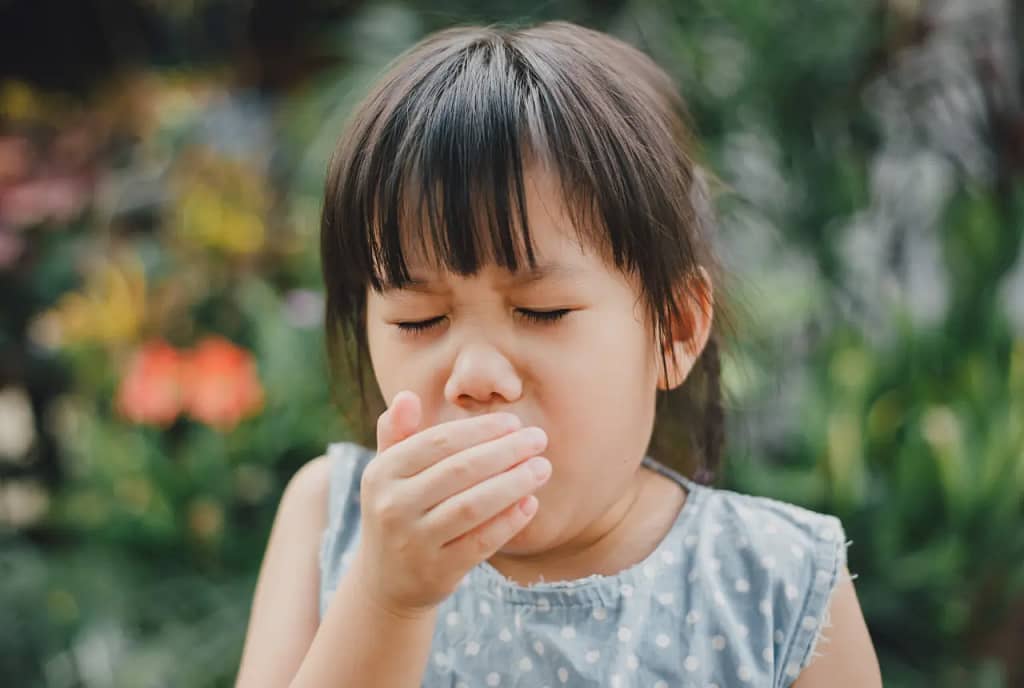
The common cold is caused by viral infections that target the upper respiratory tract. Common symptoms encompass nasal congestion, rhinorrhea, coughing, pharyngitis, and lacrimation.
Colds are very contagious through respiratory droplets expelled during coughing and sneezing. Although they cause discomfort, they typically disappear spontaneously within a week.
If your kid develops a high temperature, has trouble breathing, or if their symptoms worsen or last for more than 10 days, it is important to seek medical assistance.
2. Ear Infections (Otitis Media)

Earaches are a frequent issue, typically resulting from bacterial or viral infections in the middle ear. The symptoms encompass otalgia, pyrexia, irritability, and insomnia.
Young children are especially susceptible to blockages in their Eustachian tubes due to the form and size of the tubes.
The treatment choices for this condition differ based on the severity and may involve the administration of antibiotics, analgesics, or a period of careful monitoring without intervention.
3. Respiratory Syncytial Virus (RSV)
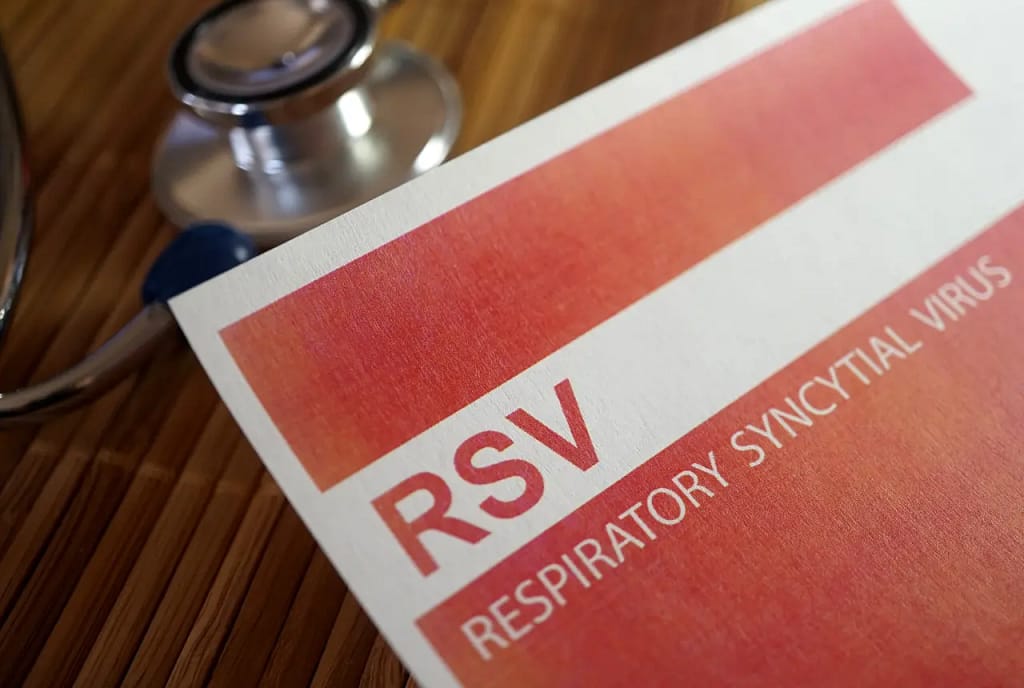
This prevalent respiratory virus often occurs during the autumn and winter seasons. Common symptoms encompass nasal congestion, persistent cough, elevated body temperature, and audible breathing difficulties.
Infants and young children are particularly susceptible to developing problems such as bronchiolitis (inflammation of the tiny airways) or pneumonia (infection of the lungs). If your youngster encounters respiratory distress, promptly seek medical advice.
4. Hand, Foot, and Mouth Disease
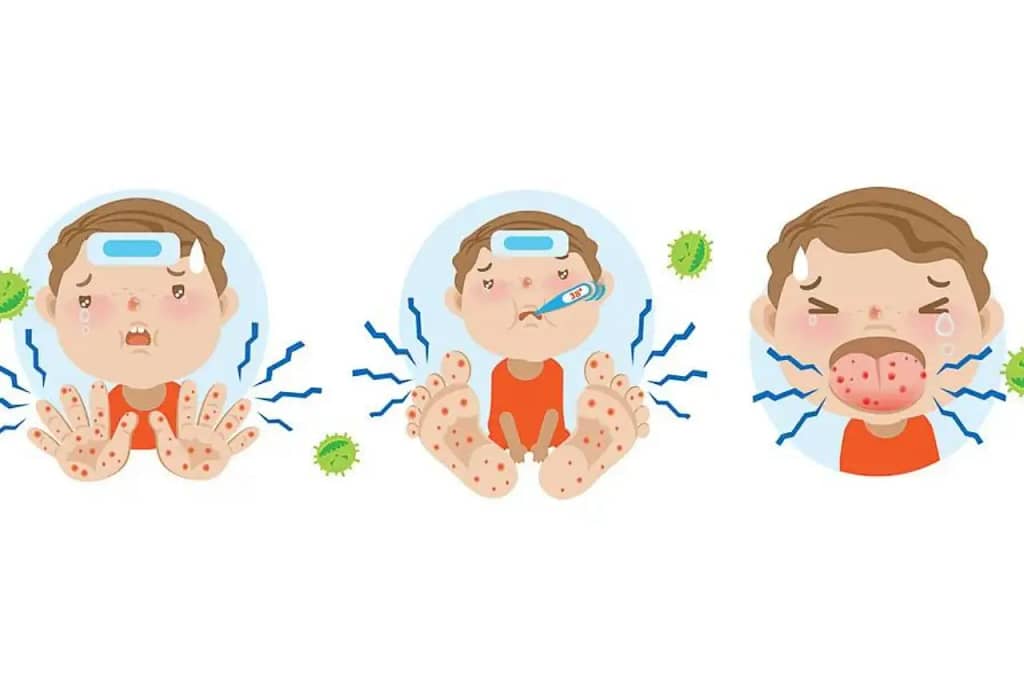
This disorder is a highly contagious viral sickness that manifests with fever, mouth sores, and a rash resembling blisters on the hands and feet.
Transmitted via direct contact and the exchange of respiratory fluids, this condition typically resolves over one week. Non-prescription analgesics can aid in the management of pain, however, maintaining proper hydration is essential.
5. Stomach Flu (Gastroenteritis)
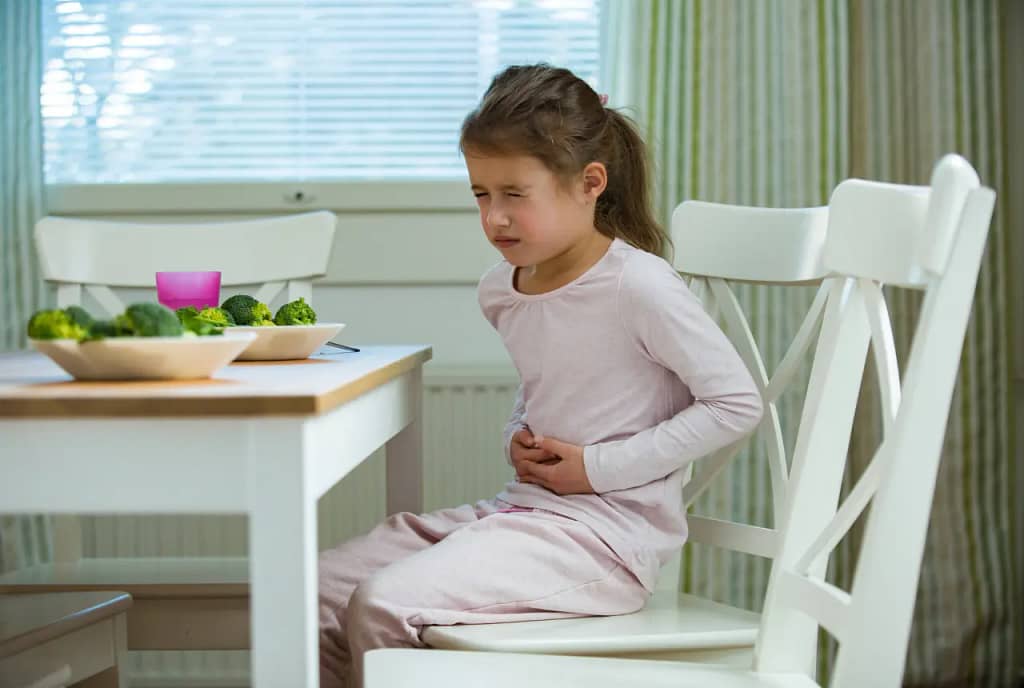
Gastroenteritis, an unpleasant condition, can be attributed to viral or bacterial infections, resulting in symptoms such as diarrhea, vomiting, and nausea. It has a high propensity for transmission via contaminated surfaces and proximity.
Maintaining adequate hydration is crucial to avoid dehydration, which poses a substantial threat to young infants. If your kid exhibits intense vomiting, bloody stools, or symptoms of dehydration (such as dizziness and reduced urine), it is crucial to promptly seek medical assistance.
When to See a Doctor
While many childhood diseases resolve on their own, some situations require a doctor’s visit. Here’s a guide to help you decide:
- General Cues: If your child experiences a high fever (over 100.4°F for infants, over 102°F for older children), persistent cough (especially at night or with wheezing), difficulty breathing, severe vomiting or diarrhea lasting more than 24 hours, unusual rashes, or extreme fussiness or lethargy, seek medical attention promptly.
- Specific Examples:
- Common Cold: Consult a doctor if your child’s fever persists for more than 3 days, experiences earache, or develops difficulty breathing.
- Ear Infections: See a doctor if your child’s earache is severe or accompanied by a fever over 102°F, or if symptoms worsen after 24-48 hours of home care.
- RSV: Immediate medical attention is crucial if your child experiences significant difficulty breathing, wheezing, or bluish skin discoloration.
- Hand, Foot, and Mouth Disease: While typically mild, consult a doctor if your child experiences dehydration due to vomiting or difficulty swallowing.
- Stomach Flu: Seek medical help if your child shows signs of dehydration (dizziness, decreased urination), has bloody stools, or persistent vomiting that prevents them from keeping liquids down.
Remember: Regular well-child visits are essential for preventive care and early detection of potential issues. Your pediatrician can provide valuable guidance on managing common illnesses and ensure your child stays on track for healthy development.
Home Remedies and Preventative Measures
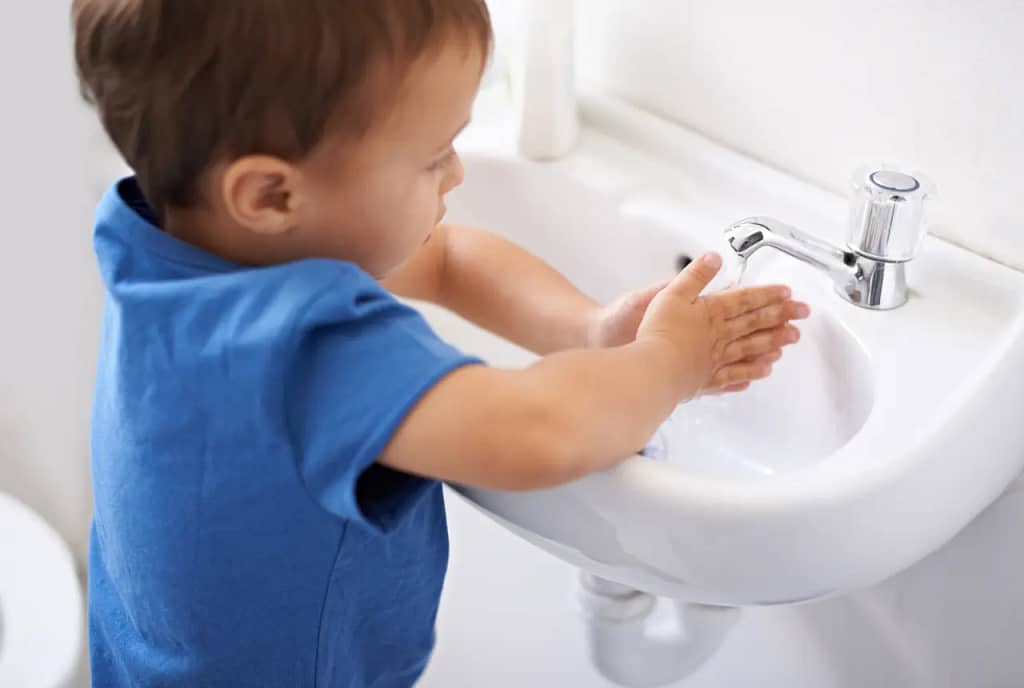
While some childhood illnesses require medical attention, many can be soothed at home with proper care. Here are some tips:
- General Comfort Measures: Plenty of rest allows your child’s body to focus on healing. Ensure they stay hydrated by offering fluids like water, Pedialyte (for electrolytes), or breast milk for infants. Over-the-counter pain relievers like acetaminophen or ibuprofen can help manage fever and discomfort (consult your pediatrician for appropriate dosage based on your child’s age and weight).
- Hygiene is Key: Frequent hand washing with soap and water is the best defense against germs. Teach your child proper handwashing techniques and supervise them, especially after using the bathroom, before eating, and after blowing their nose. Remind them to cough or sneeze into their elbow to minimize the spread of germs.
- Prevention is Key: Vaccinations are essential for preventing serious childhood diseases like influenza, measles, mumps, rubella, and chickenpox. Discuss a recommended vaccination schedule with your pediatrician and keep your child’s immunizations up-to-date.
By following these simple strategies, you can create a healthy environment for your child and promote their overall well-being
Empowering Parents, Ensuring Healthy Kids
Gaining an understanding of prevalent childhood ailments enables you to handle such situations with assurance. It is important to note that although many illnesses can naturally improve without intervention, knowing the indicators and symptoms enables you to promptly seek medical assistance when it is required.
Regular pediatric check-ups, diligent cleanliness practices, and a steadfast dedication to age-appropriate immunizations are all indispensable measures for maintaining your child’s health and well-being.

